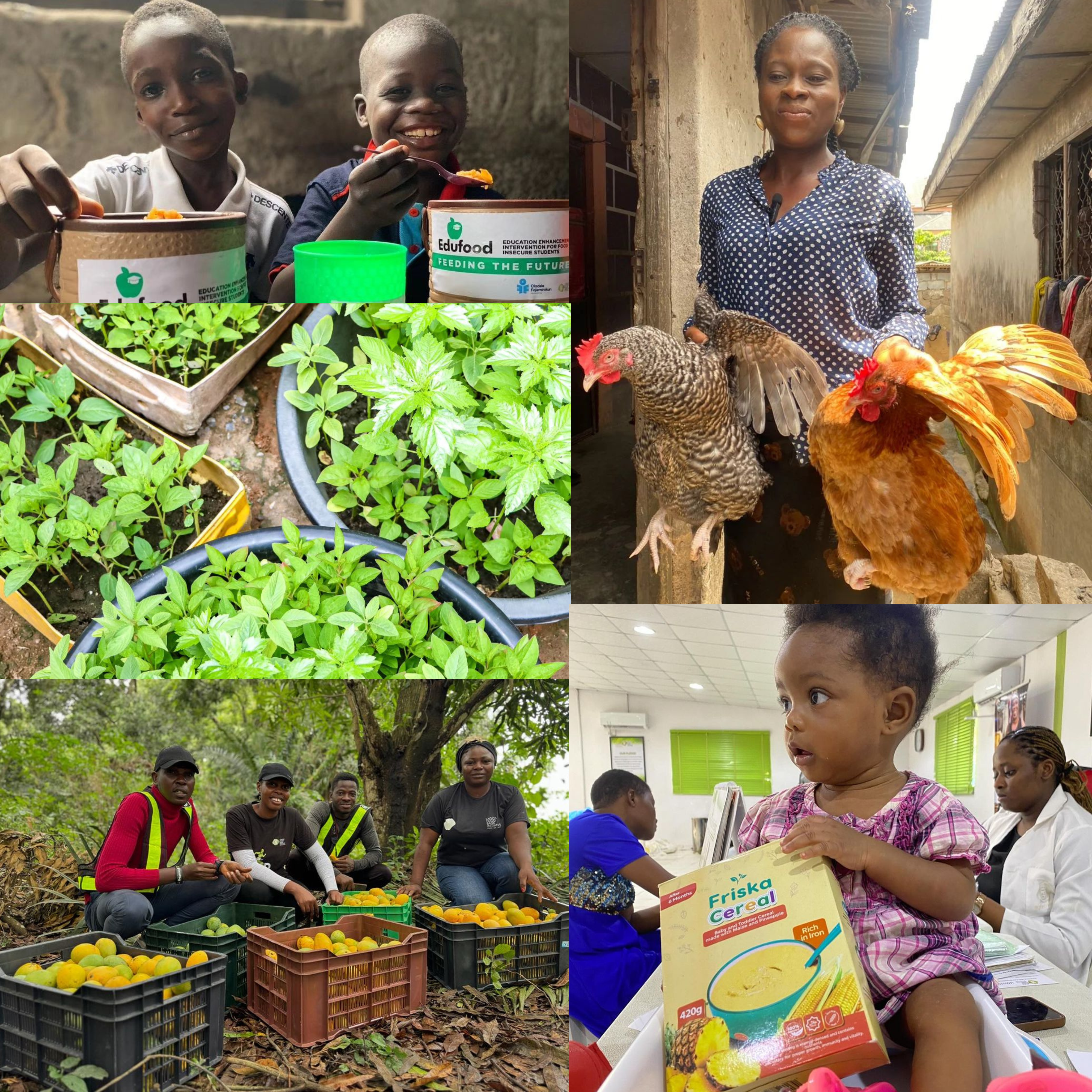The common perception of food banks is that they simply provide food for the hungry. Factually, while a food bank is commonly perceived as a hunger-relief organization, a coalition of food banks can be understood to be a core part of a sustainable food system. However, a closer look at their role reveals that food banks play a crucial role in not only alleviating hunger but also in ensuring access to nutritious food that fosters overall health and well-being.
The Lagos Food Bank Initiative is one good example to understudy in terms of providing adequate nutrition to the resilient populace living in low-cost communities. This non-profit, private-driven and nutrition-focused organization is dedicated to addressing not only food-insecurity and hunger, but also malnutrition and poverty, while actively reducing food loss and waste, thereby promoting healthy eating habits through diverse programs that focus on nutrition and sustainability.
In this article, we will be looking at some of the active programs of the food bank that focuses on nutrition, and how malnutrition and food insecurity is tackled among the vulnerable populace in Nigeria.
The Education Enhancement Intervention for Food Insecure Students is a school feeding initiative of the Lagos Food Bank which aims to address the nutritional needs of school children enrolled in low-cost private primary schools situated in economically disadvantaged areas. These students often face the risk of food-insecurity and malnutrition, hindering their ability to focus in class and comprehend properly, which inevitably increases their likelihood of dropping out of school.
The outcome of this program is usually seen as higher school attendance rates, increased concentration and learning ability in the classroom culminating in better academic performances.
The rising rate of inflation within the country in recent times has widened the already vast poverty gap and increased food insecurity in communities across the nation. The Temporary Food Assistance Program aims to combat this societal issue by providing food items that can last a family of 4 to 5 for a period of 3 to 4 weeks.
These food items not only provide sustenance, but also meet the nutritional needs of the individuals within the family. Beneficiaries of this program are mostly seniors above 50 years, widows, pregnant women and people living with disabilities.
The Nutritious Meal Plan Intervention for Vulnerable Mothers and Children program was initiated to address the nutritional needs of under-five children who are at-risk of or are malnourished, undernourished lactating mothers, and pregnant teenage girls. This program operates in partnership with Primary Health Care centers that refer eligible beneficiaries to the food bank for food support and counseling on nutrition, sanitation and hygiene, to ensure optimal growth and development of their children.
Upon referral, beneficiaries undergo thorough assessments to determine the extent of their malnutrition. Subsequently, mothers receive personalized counseling sessions aimed at empowering them to make informed dietary choices for themselves and their children. These counseling sessions provide tailored and detailed education on nutrition during pregnancy, lactation, and early childhood development.
As part of an extensive counseling session, beneficiaries are provided with affordable meal plans tailored to their nutritional requirements. These meal plans are supplemented with essential food items, ensuring adequate nourishment for both mothers and their children.
The Nutrition Intervention for Diabetes Self-management is a program that seeks to help those living with diabetes manage their health through nutritional counseling and provision of diabetes-appropriate meal plan and food items to ensure sustainable glycemic control. Food insecurity can make a diabetic to consume meals that will worsen the management of diabetes, thereby making this class of people unable to live healthy and productive lives. The food bank recognizes the need to improve the living condition of these people by providing foods that support their health status.
The Family Farming initiative of the food bank seeks to encourage and promote access to nutritious fresh farm produce by training and providing beneficiaries with start-up materials for urban backyard farming on vegetables, poultry and snails.
This sustainability program of the Lagos Food Bank also helps to boost household income of beneficiaries who can market surplus harvest after consumption. By training widows, women and youths on sustainable small-scale farming to be self-reliant, the Family Farming program of Lagos Food Bank Initiative is a major way food banks mitigate malnutrition, curb food insecurity, and promote healthy eating.
By addressing food loss and waste on a production level through the rescue of surplus harvest for redistribution, Lagos Food Bank Initiative promotes healthy eating in low-cost communities by ensuring these fresh farm produce get to those most in need of food and nutritional support through the Agricultural Recovery Program.
Through collaborations with local farmers, the food bank ensures that the surplus harvest of fresh fruits and vegetables are rescued for redistribution to reduce the impact of food loss on climate change by promoting sustainable production and consumption practices, while also raising awareness about the environmental consequences of food loss and waste and its impact on resource depletion and biodiversity loss.
By prioritizing access to wholesome food and essential nutrition education, the Lagos Food Bank Initiative through continued collaboration and commitment from major stakeholders in the society, makes significant strides in combating hunger and malnutrition, ensuring a more sustainable future for all.
Article written by Anya Shalom Chukwu.


